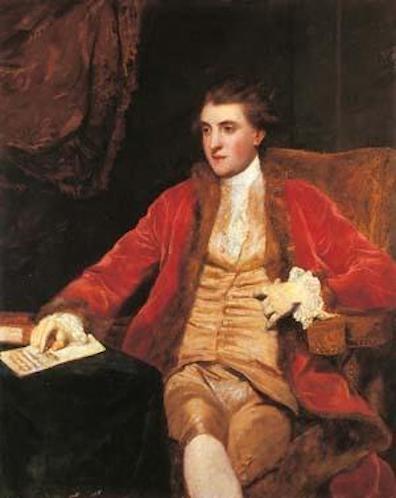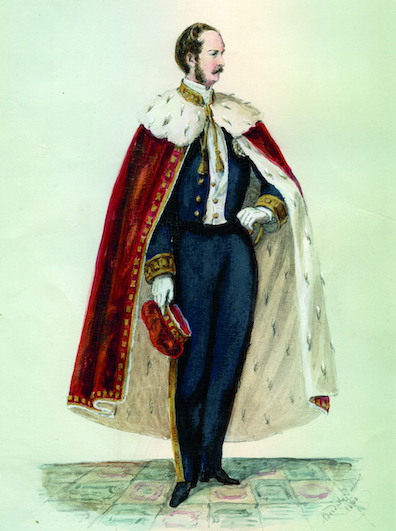Parody. "And lo, as they quaffed their cup of joy,
a godlike messenger came swiftly in, radiant as the eye of
heaven, a comely youth and behind him there passed an elder of
noble gait and countenance, bearing the sacred scrolls of law
and with him his lady wife a dame of peerless lineage, fairest
of her race": this sentence uses language suggestive of the
aristocratic nobility of Georgian culture to say simply that
Alf Bergan walked into the bar while Dennis and Josie Breen
passed by it. The inappropriateness of the elegant words
constitutes one joke. The word "peerless" supplies another.
If some specific
literary style is indicated by the flowery language, no Joycean
commentator has yet identified it. (Gifford is typical in
referring vaguely to "Irish legend.") But this parodic
interruption seems to move the mythologizing of Irish nobility
begun with
Cú Chulainn and
Rory O'More
into a later, more refined historical era. Alf is "a godlike
messenger" and "comely youth," Dennis is "an elder of noble
gait," and Josie is a "lady" or "dame," "fairest of her race."
Olympian splendor ("
they quaffed their cup of joy") is
draped over barhounds downing pints of porter: "Ah! Ow! Don't be
talking! I was blue mouldy for the want of that pint. Declare to
God I could hear it hit the pit of my stomach with a click."
Rabbinic gravity ("
bearing the sacred scrolls of law")
enfolds a paranoid lunatic lugging legal tomes all over Dublin
on a hot day: "that bloody old pantaloon Denis Breen in his
bathslippers with two bloody big books tucked under his oxter
and the wife hotfoot after him, unfortunate wretched woman,
trotting like a poodle."
Slote, Mamigonian, and Turner report a lovely ambiguity in "
dame
of peerless lineage," suggested to them by Harald Beck.
The phrase claims that Josie and her kin are unequalled
("peerless") while simultaneously admitting that the family line
contains no noble persons ("peers"). (The notion of high
aristocrats as equals of one another goes back to medieval
stories of Arthur's Round Table and Charlemagne's Twelve Peers.
It lives on in the English "peerage," which includes dukes,
marquesses, earls, viscounts, and barons.) This single word
captures both the absurd hyperbole of the
Cyclops
parodies and the perfectly mundane realities that it covers up.
Many words in the sentence—godlike, radiant, elder, noble,
sacred, law, lady, dame, peer, lineage—carry to this
commentator's nose the whiff of 18th century Enlightenment
ideals. One may imagine aristocrats of Ireland's Protestant
Ascendancy agreeing that to a man and woman they all possess a
certain inherent rational dignity, nearly divine in its
apprehension of harmonious order, to which common members of the
human race can only mutely aspire.

